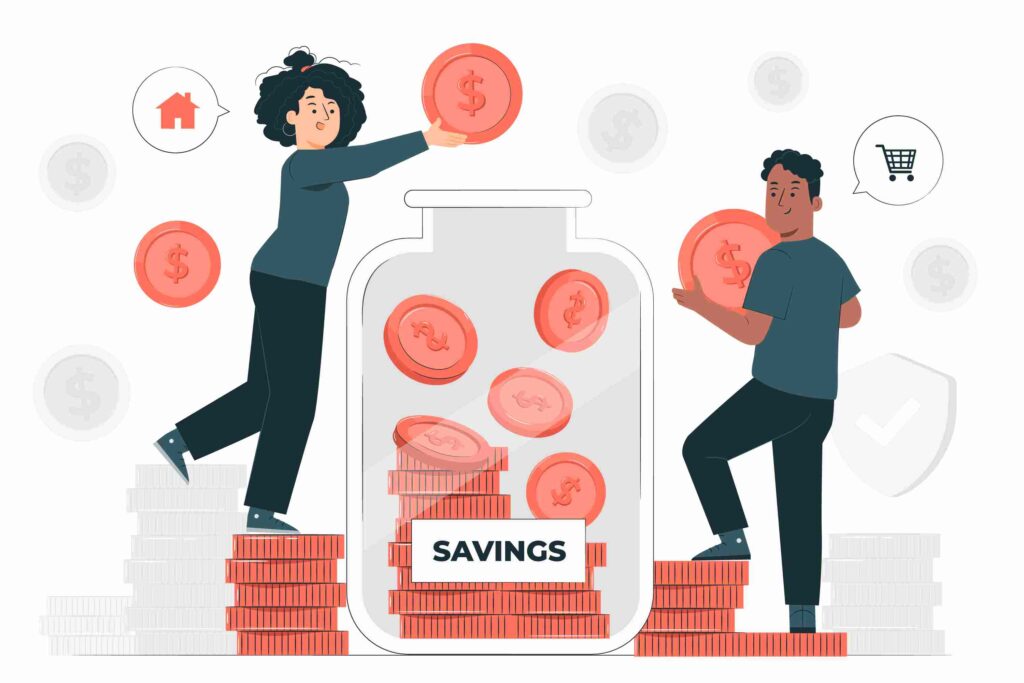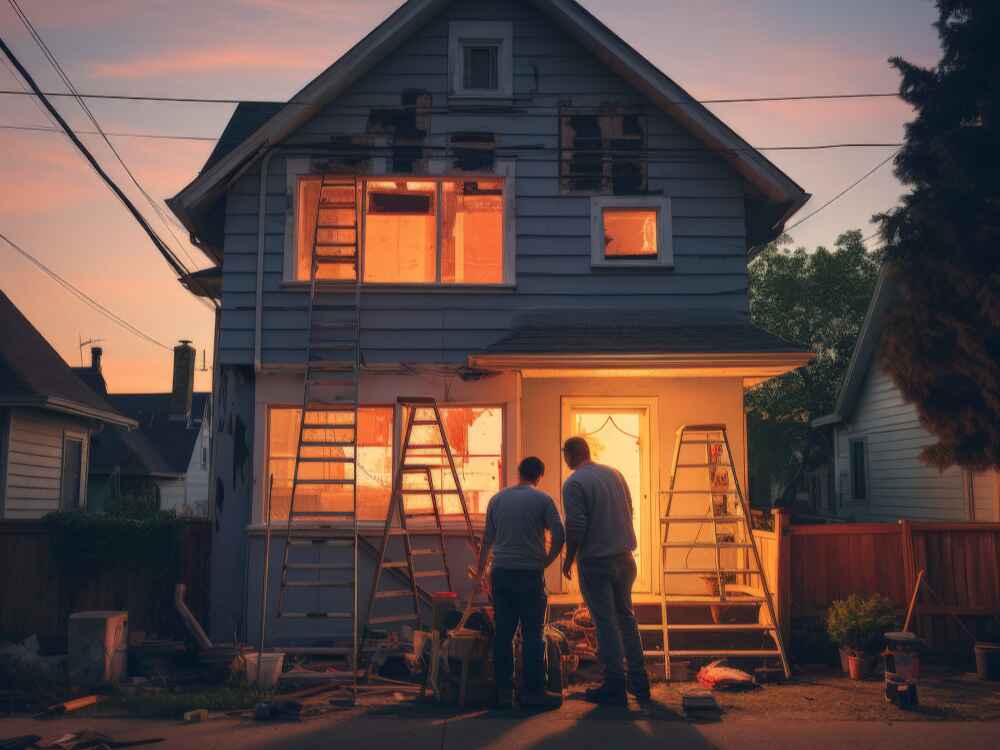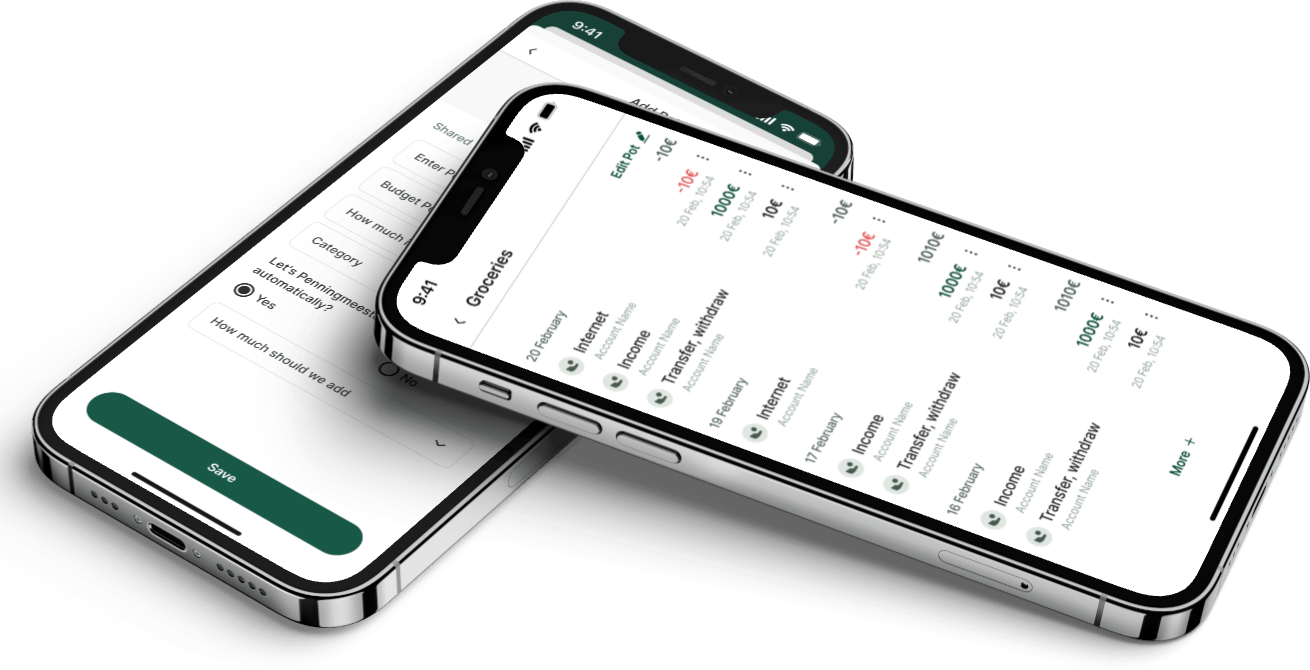New City, New Life, New… What the Hell Is This Bill?
There’s a kind of electricity that comes with starting fresh. A new job. A new apartment. A new café on the corner where the barista already knows your name after three days, which, okay, maybe says more about your caffeine habit than anything else.
You’ve packed your life into boxes, untangled your Wi-Fi contract, and forwarded your mail like an actual adult. You’ve made the move, landed, and done all the things the checklist told you to do. There’s a moment, maybe a day, maybe just an hour, where everything feels like it’s in its place.
And then it hits you.
The bank notification. The groceries that somehow cost double. The IKEA receipt you swore would be under €100 but somehow reached rent-adjacent levels. Suddenly, you’re not just in a new city—you’re in a new financial reality. And the budget that worked just fine back in your old place? It’s now completely out of sync with the life you’re living.

“Wait, How Is This Move Already at €4,000?”
Let’s get honest for a second: moving isn’t just a couple of boxes and a deposit. It’s an ambush. A sneaky, slow-draining, IKEA-fueled ambush.
Here’s what it really costs to start fresh in a new Dutch city (based on averages from Amsterdam, Utrecht, Rotterdam, and Reddit survival threads):
Expense | Solo (€) | Couple (€) |
|---|---|---|
Rent | €1,200–€1,500 | €1,500–€1,800 |
Security deposit | €1,500–€3,000 | €1,800–€3,200 |
Utilities (gas/water/electric) | €150 | €200 |
Internet setup | €40–€60 | €50–€70 |
Groceries (restocking pantry) | €400–€500 | €600–€750 |
Clothing (seasonal refresh) | €100–€150 | €150–€250 |
Furnishing your place | €1,500–€2,500 | €2,000–€3,000 |
Public transport / setup | €120/month | €200/month |
Takeout / “too tired to cook” food | €100–€200 | €150–€300 |
Admin fees (trash tax, etc.) | €100–€200 | €150–€250 |
Total Estimated Range:
Solo: ~€5,200–€8,300
Couple: ~€6,850–€10,840
Tip: These aren’t scare tactics — just real numbers. Once you know what to expect, you can start cutting back without cutting joy.
How to Cut That Down Without Cutting Corners
The good news? You don’t have to spend like you just signed up for “Dutch Bachelor: Mortgage Edition.” Here’s how smart movers save hundreds (sometimes thousands):
Furnish Like You’re Resourceful, Not Poor
Use Marktplaats, Facebook Marketplace, and thrift shops for secondhand steals. People are always offloading full living room sets when they upgrade.
Leen Bakker & Jysk > IKEA for basics like chairs, rugs, and shelves — often cheaper, same vibe.
Skip fancy cutlery and plates. HEMA starter packs are cheap, decent, and very Dutch.
Avoid “IKEA Mission Creep”
Make a list before going in. Stick to it like your budget depends on it. (It does.)
Buy essentials first, like bedding, kitchen stuff, storage. You can get the funky lamp later.
Skip the €80 fake plant. You’re already thriving without it.
Split Upfront Costs (Without a Roommate)
Consider short-term furnished sublets to delay big purchases and avoid deposits for now.
Ask landlords about deposit insurance (some offer services where you pay ~€10–€30/month instead of €1,500 upfront).
Don’t forget: DUO loans don’t cover relocation. Plan accordingly.
Budget Like You’ll Be Tired (Because You Will Be)
Pick up a few ready-made meals before moving day — maybe not your favourite, but cheaper than ordering sushi at 22:00. Think: pasta salad, oven lasagna, soup, even a fresh supermarket sandwich.
Budget for “convenience meals” in week 1. That €25 takeaway bill might feel like survival… until your budget reminds you you’ve done it four times this week.
Try Too Good To Go for food bundles and Lidl or Albert Heijn Bonus Box for grocery deals — Picnic is handy, but usually not the cheapest.
Transport Hack
Walk or cycle as much as you can, you’ll save money and get to know your city way better. Then decide if NS Flex Dal Voordeel (€5/month) or a bike rental plan fits your routine. Check if your new employer reimburses public transport, many Dutch companies do.
Create a Temporary “Chaos” Budget
Literally name a category “Settling In Madness.”
Put €200–€300 there and forgive yourself for using it on random bolts, bin bags, or mood-saving stroopwafels.

When the Familiar Stops Fitting
Here’s what no one tells you about moving: your money doesn’t move at the same speed as your stuff.
You had a rhythm. You knew your rent. You knew your weekly shop, your favorite deals, the bike routes that didn’t kill your legs. You had a budget that wasn’t perfect, but it made sense for the world you were living in.
Now? Everything’s slightly off. Rent is higher. Lunches with coworkers are a thing. That cheap little supermarket? Gone. The roommate who used to split all the basics? Also gone. Suddenly, the €80 you used to spend on weekends barely covers two drinks and a train ride.
You’re still earning. You’ve built up until you try to restart. The pantry you have to rebuild from scratch, spices, oils, sauces, the essentials that add €80 to a grocery run. The overpriced takeaway while your kitchen is still in chaos. The little things that help you feel settled, rugs, lights, and a coat rack, add up fast.
And then there’s admin fatigue. New transport passes. New billing cycles. New everything. You’re exhausted from the logistics, so you spend without thinking just to make life easier.
None of this makes you bad with money. It just makes you new to this version of life. And without adjusting your financial system, these small decisions start snowballing in the background.
Reset, Don’t Recreate
The mistake most people make? Trying to force their old budget into a new lifestyle. It’s like squeezing into jeans from two sizes ago; they might technically fit, but they’re not built for the life you live now.
You don’t need a tighter budget. You need a smarter one.
Take a breath. Zoom out. What actually changed?
Maybe your rent increased. Maybe your commute costs tripled. Maybe you’re spending more just to feel grounded in your new space. That’s not failure. That’s reality.
So give yourself time. Track without judgment. Create a temporary category for “settling in.” Add a buffer called “oops.” Let it be messy before it gets better. Because pretending you can carry your old system into your new world just sets you up for frustration.
Whether you track manually, use a spreadsheet, or try a budgeting app, the important part is adapting, not sticking to a past that doesn’t fit anymore.

The journey of thousand miles begins with a single step.
~ Lao Tzu
What a Flexible Budget Looks Like in a New City
If you’re not sure where to start, here’s what helps:
Track for two weeks. Not forever. Just long enough to see what’s changed.
Add categories for things that weren’t in your life before (more dining out, solo utility bills, public transit).
Look for what surprised you, and label it. Surprises stop being surprises when they’re visible.
Don’t over-categorize. You don’t need 27 buckets. You need visibility.
Whether you’re doing this in Excel, an app, or even notes on your phone, it’s about getting clear, not getting perfect.
If you’d prefer something that nudges you along the way without needing to build your own formulas, NeroBudget can help. It doesn’t expect you to know it all upfront. It learns with you. It’s one less thing to figure out when everything else already feels new.
But the point here isn’t which tool you use. It’s that you let yourself update the system. Because the old one doesn’t know where you live anymore.
Final Thoughts: Let It Be New
Moving isn’t just logistical. It’s emotional.
You’re not the same person in this city. Your routines are different. Your habits are shifting. Your money will reflect that, and that’s okay.
You don’t need to panic because your expenses have changed. You don’t need to shame yourself for not having it “under control” yet.
You just need to recognize the new rhythm. And give yourself a system that can adapt with you.
That might be a spreadsheet. That might be NeroBudget. But either way, your money deserves to catch up with the life you’re living now.
You already moved.
Now let your budget move with you.





